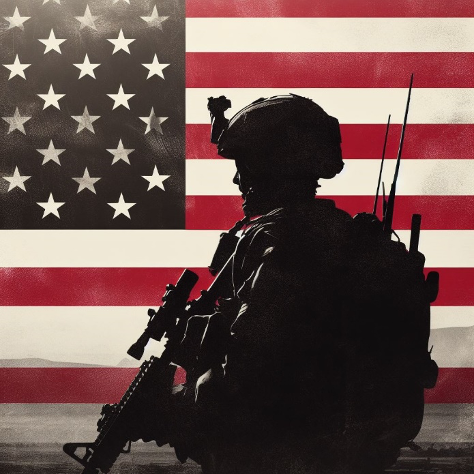This and every Veterans Day, we honor the service of the men and women who placed themselves in harm’s way to safeguard our country. We often focus on the more visible wounds of combat and training. However, the less visible, yet equally impactful, injuries are often traumatic brain injuries (TBIs). Veterans, particularly those who have served in combat zones, are at high risk of experiencing brain injuries. In this blog post, we delve into the prevalence of brain injuries among veterans, the causes, and the resources available to support them.
Prevalence and Causes of Brain Injuries Among Veterans
Traumatic brain injuries are a significant concern within the veteran community. The Defense and Veterans Brain Injury Center (DVBIC), now called the TBI Center of Excellence (TBICoE), reported nearly 414,000 TBIs among U.S. service members worldwide between 2000 and late 2019. More than 185,000 Veterans who rely on the VA for their health care have been diagnosed with at least one TBI.
In a Veterans Administration (VA) study looking at 1,810 Archival and 316 observational data collected from individuals seeking care at Mountain State VA Medical Center in Virginia, the prevalence of probable TBI among those seeking VA mental health treatment was nearly half — an astoundingly high percentage.
Military members typically incur TBIs in one of three ways:
1. Combat: Explosions and blasts are a primary cause of TBIs in combat settings. The shockwaves from improvised explosive devices (IEDs) and other explosives can lead to severe head injuries.
2. Training Accidents: Military training exercises, which often involve intense physical activity, can also result in TBIs. Falls, collisions, and equipment-related injuries are common causes.
3. Non-Combat Injuries: Not all TBIs among veterans are combat-related. Veterans can experience head injuries in various ways, such as car accidents, falls, or sports activities during or after their service.
Resources for Veterans with Brain Injuries
There are a range of resources and support available to veterans who have experienced brain injuries. These resources aim to help veterans not just through treatment and rehabilitation, but also through reintegration into civilian life. Here are some key resources:
1. VA Healthcare and Polytrauma/TBI System of Care: The VA operates a healthcare system that includes general medical care, and rehabilitation services. They also offer a Polytrauma/TBI System of Care with locations across the US, including “Support Clinic Teams” which offer outpatient services at 87 VA facilities. Many veterans with TBIs experience mental health challenges, and the VA also offers mental health services, including counseling and therapy, to address these needs.
2. Community-Based Programs: Several community organizations, such as the Transforming Health and Resilience in Veterans (THRIVE) Program, and nonprofit groups, such as Concussion Alliance, offer support to veterans with TBIs. These programs focus on rehabilitation, counseling, and connecting veterans with peers who have had similar experiences.
3. Veterans Service Organizations: VSOs like the Disabled American Veterans (DAV), the American Legion, and the Veterans of Foreign Wars (VFW) can help veterans navigate the VA system, access benefits, and connect with other resources, such as Make The Connection.
For more information please click on any of the links in this post.
